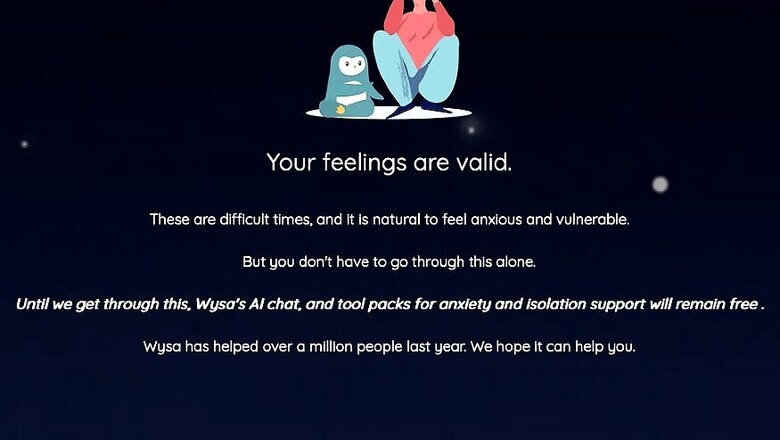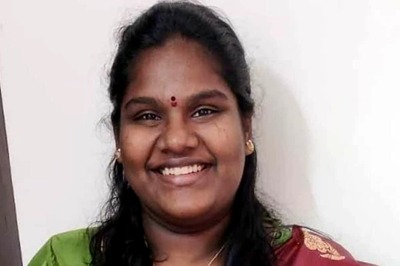
views
While artificial intelligence continues to take on every avenue, one aspect that most big tech companies around us have been trying to teach its computers is emotion. Couple that with the Covid-19 pandemic, and you have many companies also trying to solve mental health issues by bringing technology to the fore. Indian startup Wysa, founded and spearheaded by entrepreneur Jo Aggarwal, has taken on both these roles to see people through difficult times.
“Creating empathy is a combination of science and art,” says Aggarwal, in an interview with News18. “The science is focused on building strong AI models using our 100 million-odd conversations to understand user inputs (we have more than 100 of these), to recognise a gamut of emotions like anger, grief, sadness, or anxiety. The art in this is about writing content in a way that is robust, is based on evidence-based techniques, and driven clinical input and review. Yet, it should feel accessible and friendly, and use colloquial language that is easy to understand,” she adds.
Creating empathy is a combination of science and art.
Aggarwal’s Wysa has had over 1.7 million people reaching out to its platform for some form of help or the other. This, as she explains, has created over 100 million interactions with its AI service, which in turn has helped the startup build its own algorithm from the ground-up. While it has human experts and psychiatrists extending therapy sessions and journaling advice to Wysa’s users, this humane AI model is one of its key offerings. To build confidence in its users, Wysa further pledges complete anonymity for any information that anyone shares with either its doctors or its chatbot. “Both (AI and human) layers are anonymous, which is really important as it builds a safe space for people, who need support during these difficult times,” she adds.
Talking about the difficult times of the Covid-19 pandemic, Aggarwal says that there has been a clear and definite uptick in users coming to Wysa for help. As she says, “In the first three months of 2020, we saw an 80 percent increase in installs versus the same period last year. We’ve also seen a big spike in the usage of Wysa’s digital self-management toolkits related to Covid-19, such as those for anxiety, isolation, loneliness and sleep. Also, starting from nearly zero, references to the pandemic have now gone to around 60 percent of all conversations with the mental coaches or therapists.”
Through all the progress, Aggarwal states that Apple’s app developer ecosystem has played a strong role in Wysa’s growth story. “We have taken their help at multiple points in our journey – raising Wysa’s profile using their startup and entrepreneurship platforms, thinking through challenges in growth and user acquisition, or even improving the product with early access to Apple features like dark mode, accessibility for visually challenged users and voice integration with Siri,” she says. In 2019, Aggarwal and Wysa were part of 42 women-led companies across 13 countries that featured in the first year of Apple’s Entrepreneur Camp.
While Aggarwal did not disclose active user numbers, she confirmed that the platform has so far raised $3.3 million in funding. As for its revenue model, it has both consumer and enterprise approaches. The former offers companies with co-branding, custom content and resources in exchange for a fixed licensing fee and user-dependent charges. As for the consumer model, Wysa offers a basic freemium model for people to reach out, and subsequently follow up with paid subscriptions.




















Comments
0 comment